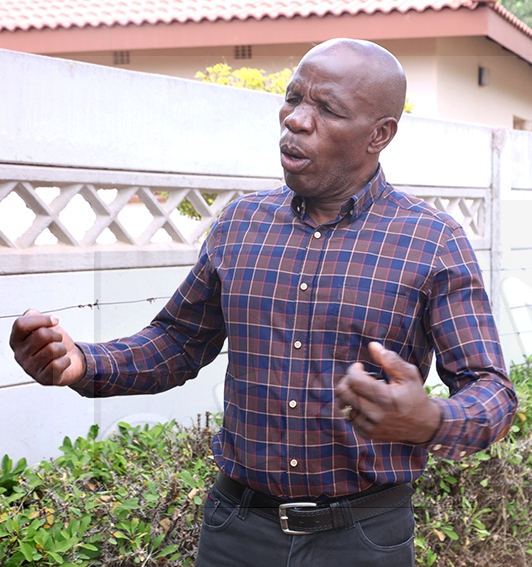Councilors - Servants or sacrificial lambs
01 Apr 2025
Are councilors more caretakers than representatives?
In many communities, if not across the country, there is a growing belief that once elected, councilors owe their constituents constant attention and service. Such mindset places an unfair burden on these officials, who should focus on advocating for development and improving services rather than being expected to attend every local event, including funerals, out of obligation.
Bokaa North Councilor, Mr Tshoganetso Serojane, knows this all too well. He recalls how he often finds his name printed on funeral programmes without prior notice where he is expected to speak on behalf of the council despite not knowing the deceased.
“O fitlhela mokhanselara a kwadilwe mo lenaneong la phitlho ntswa a sa itse moswi mme re felela re bua tsa kwa khanseleng mme go sa lebana,” says Mr Serojane in an interview.
He explains that councilors are often forced to make official announcements in what he believes is an inappropriate context.
While his primary responsibilities include pushing for local development and ensuring government services particularly in healthcare, reach the community, he finds himself pulled into additional roles that go far beyond his mandate.
From improving internal roads to advocating for better service delivery, he must also navigate a landscape where constituents expect him to fetch firewood for funerals, transport livestock or even serve as an ambulance in emergencies.
Mr Serojane also mentions how he sometimes serves as a de facto ambulance, transporting the sick to the hospital. The blurred lines between civic duty and personal obligation is most evident in the early hours of the morning. On more than one occasion, Mr Serojane has been woken between 2am and 3am, not for urgent policy matters but because someone needed transport to the hospital. Instead of calling an ambulance or the police, the first instinct for many is to call their councilor.
The expectation extends beyond emergencies. It is not uncommon, he says, for people to knock on his door asking for transport money or airtime, a phenomenon reminiscent of former Minister, Mr Patrick Ralotsia’s remark: “Fa e sale ke nna MP le madume ame a a rekwa, fa o dumedisa motho o kopa P10 or (since I became an MP, my greetings are for sale.)”
Unlike Members of Parliament, he says, councilors do not have offices, so their homes become the primary contact point for citizens seeking assistance. This reality affects not only them but also their families who must adapt to the constant stream of visitors and demands. The financial strain is another challenge with councilors often digging into their own pockets to meet community needs.
Mr Serojane underscores the importance of financial literacy, cautioning that a five-year term can pass quickly leaving councilors without personal investments or savings.
To remedy this situation, Bokaa South Councilor Tshepo Moloko, suggests that education and a mindset shift are essential. He believes education is crucial for reviving the spirit of self-reliance, emphasising that councillors should not be exploited under the guise of helping and should feel free to volunteer only when necessary.
Mr Moloko, who served 15 years in the Diphetogo Ward in Gaborone, fostered self-reliance and community spirit, intending to impart similar values to the Bokaa community. He attributes the emergence of this expectation to political tactics aimed at winning votes, noting that such practices can hinder progress, as candidates may secure Win funeral preparations rather than advocating for their wards’ development.
Echoing Mr Serojane’s views on financial literacy, he remarks, “five years elapses in a short period of time… e se re a fela motho a bo a tshwana le motho yo o neng a ile go kaletsa ntsa…”
Residents themselves have mixed views. Ms Pulane Moilwe, a Bokaa voter, believes councilors should focus on bringing development to the village instead of being overwhelmed with personal requests. She acknowledges that some take advantage of them, demanding constant financial or logistical support, even as councilors juggle their own responsibilities.
She has noticed how some individuals take advantage of councillors, expecting them to meet constant demands, which can incur costs such as fuel. In her ward, she acknowledges that the councilor was proactive and hands-on during his previous terms, urging the community to show understanding, as councillors, too, have personal lives and bills to pay.
Another resident, young Ms Lesego Pushudi, urges leaders to prioritise essential services such as healthcare and road maintenance. While Ms Pushudi understands the need to approach councilors after events such as the recent floods, she is clear that the expectation of personal favours simply because one voted is unwarranted. ENDS
Source : BOPA
Author : Ndingililo Gaoswediwe
Location : Gaborone
Event : Interview
Date : 01 Apr 2025






